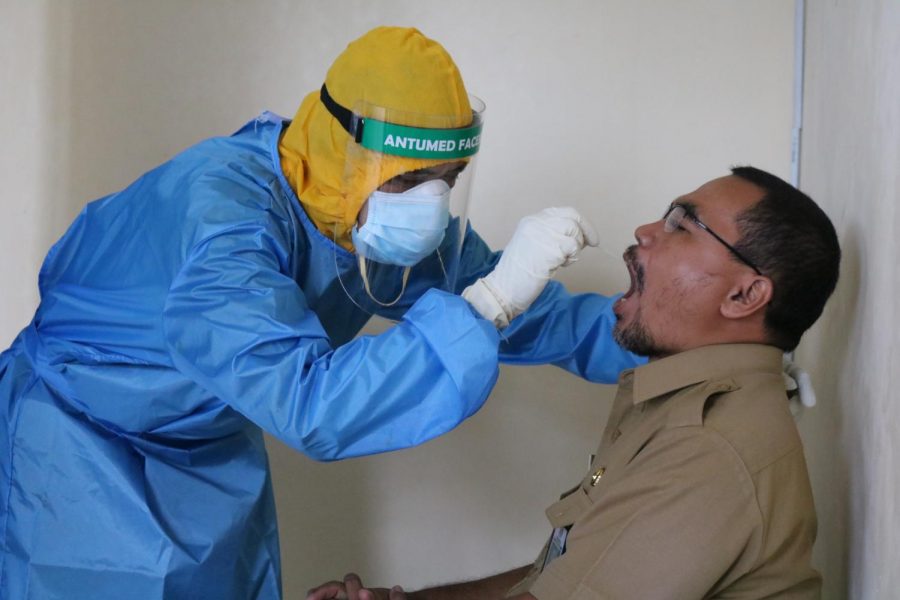OPINION: Trust in healthcare is rapidly decaying amidst COVID-19 pandemic
On Dec. 14, the U.S. began administering COVID-19 virus vaccines to high-risk healthcare workers. This monumental day was filled with anxiety as shipments of the vaccine were quickly distributed throughout the country. Our nation has been watching as doctors, nurses and other healthcare personnel began receiving their initial doses of the vaccine.
This first vaccine to be administered in the U.S. is made by Pfizer. The initial dose is 52% efficient at preventing the COVID-19 virus. However, Pfizer’s vaccine requires two doses in order to be 95% efficient. Other vaccines, such as the one made by Moderna, are expected to be approved for distribution in the coming weeks.
Scientists worked tirelessly for months to develop a safe and effective vaccine for the virus. Now that it is here, a staggering amount of people are turning their backs on it, claiming that they don’t feel comfortable receiving a vaccine that was developed so fast. In fact, only 58% of people in the U.S. expressed intent to get vaccinated. This is a startling statistic considering the current rate of infection in the U.S.
Many people are hesitant to receive the vaccine because of the potential side effects, long-term health consequences and other issues that could occur. Not many people want to subject themselves, family or their children to a brand-new vaccine without seeing long-term, consistent and positive results. People are scared, and rightfully so. After all, there is still much we don’t know about the virus.
These concerns are completely valid and need to be recognized. If people are worried about the vaccine, then they should not be forced to receive it. However, people must remember that a worldwide team of scientists have been collaborating for months to develop this vaccine. They have done the best they possibly can with the given the information and raw data they have about the virus. It’s unfair to doctors, scientists and other workers for the public to lose trust in healthcare during the pandemic.
People who are afraid of the COVID-19 vaccine are not anti-vaxers in the traditional sense. The majority of these people are genuinely concerned about the potential side effects and long-term impacts from the vaccine. In an age where 4,500 medical drugs and devices are recalled every year in the U.S., it’s no surprise that people are fearful of the new vaccine.
So how can we rebuild our trust in healthcare amidst this pandemic? A good place to start is by recognizing the breakthroughs the healthcare industry has made in the treatment and prevention of the COVID-19 virus.
Since the onset of the virus, the healthcare industry has made great strides in optimizing testing and increasing access to facilities. COVID-19 virus tests are now offered nationwide at health centers, pharmacies and other organizations like universities. Some of these places offer free tests to qualifying individuals.
The healthcare industry has also optimized the treatment of COVID-19 in patients who suffer complications. Doctors now know that COVID-19 can lead to blood clots in some individuals. With that information, doctors can better treat high-risk patients to lower their risk of that complication.
It’s normal to feel scared during these unprecedented times. The COVID-19 virus vaccine is a new development, but it is promising in helping fight the pandemic.
Instead of allowing fear to fuel mistrust of our healthcare, let it motivate you to support healthcare efforts in every way possible. Scientists and healthcare workers are doing their absolute best to provide a safe and effective treatment given the information they have.










